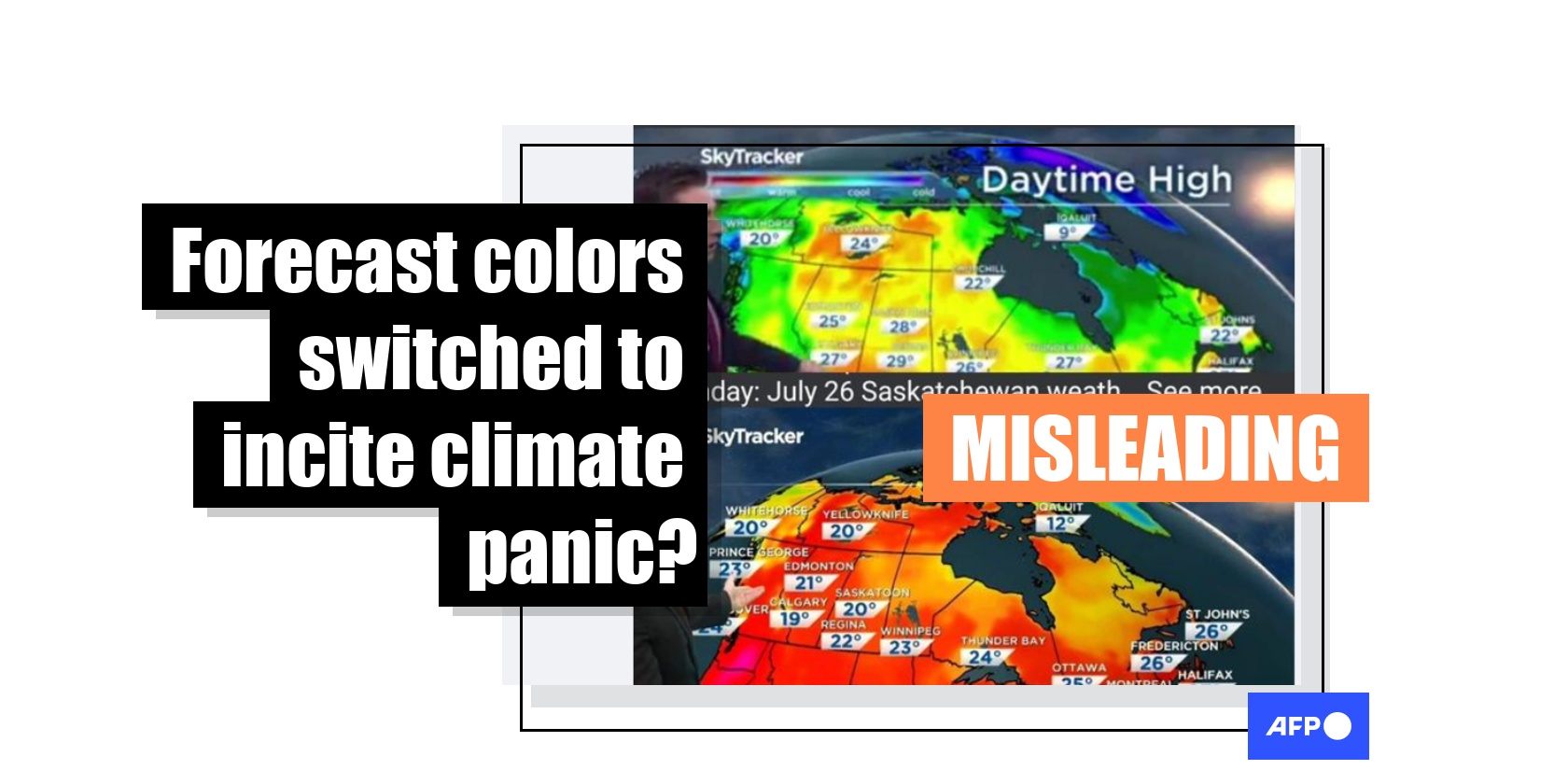
Canadian weather maps were not changed to exaggerate global warming
- This article is more than two years old.
- Published on August 18, 2023 at 22:08
- 4 min read
- By Gwen Roley, AFP Canada
"I guess a 'red hot' 19 degrees in 2021 is warmer than a green 20 degree day from four years ago," says the caption of an August 14, 2023 Facebook post with more than 2,400 shares.
The post includes a photo with two screenshots of weather reports in Canada.
The first forecast, dated July 9, 2018, illustrates temperatures ranging from nine to 29 degrees Celsius (about 48 to 84 degrees Fahrenheit) with green and yellow. The second map, labeled "July 26," uses red and orange to shade in areas with temperatures between 12 and 27C (about 54 to 81F).
The photo comparison circulated elsewhere on Facebook with the same caption. Similar claims have spread online since at least summer 2022 -- including a post from Alberta Legislative Assembly Member Todd Loewen, who has since become the province's minister of forestry, parks and tourism.
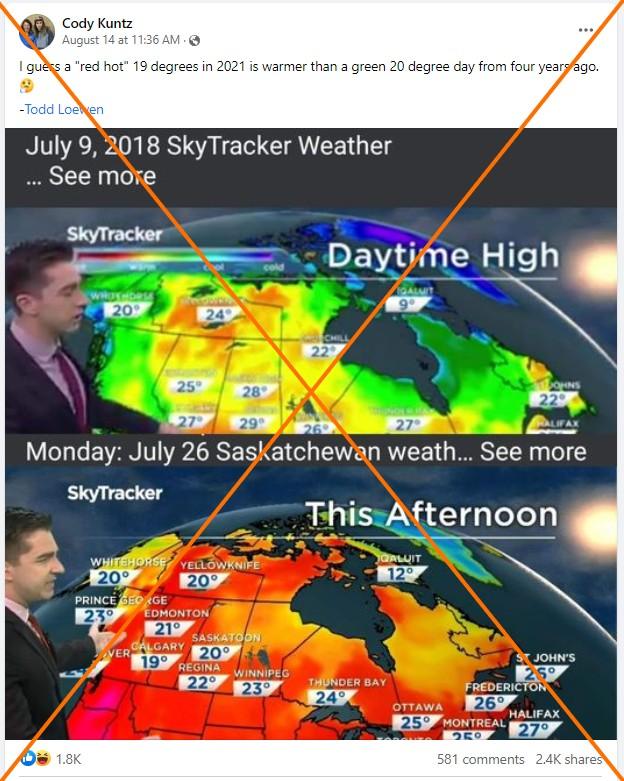

"Could this be the media pushing a government agenda?" says an August 10, 2022 post with the photo on Twitter, which is being rebranded as "X."
AFP has previously fact-checked claims that meteorology reports in the United Kingdom, Sweden and Germany were manipulated to exaggerate the severity of global warming. The posts about Canada are similarly misleading.
Peter Quinlan, a Global News meteorologist who appears in both screenshots, told AFP the colors vary between the photos because he had to use weather mapping software with different palette settings for a week in 2018.
"My computer just crashed one week," said Quinlan, who is based in Saskatoon, Saskatchewan. "Then I had to use my colleague's computer to complete my weathercasts. And back then they happened to have a different temperature color contour on their national temperature map."
In 2018, Global News meteorologists selected their own palettes for forecasts, he said. But by the end of 2022, the company standardized the colors.
A reverse image search reveals the second photo in the posts is a screenshot from a July 26, 2022 Global News broadcast (archived here).
Quinlan's forecast from July 9, 2018 (archived here) does feature cooler colors. But similar videos from June and August of that year show deeper oranges and reds -- similar to those in the 2022 broadcast (archived here and here).
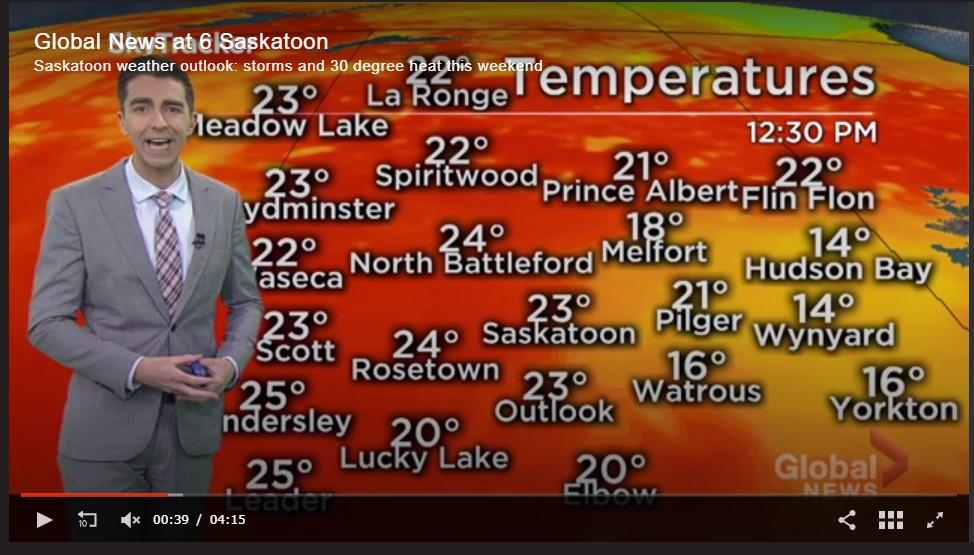
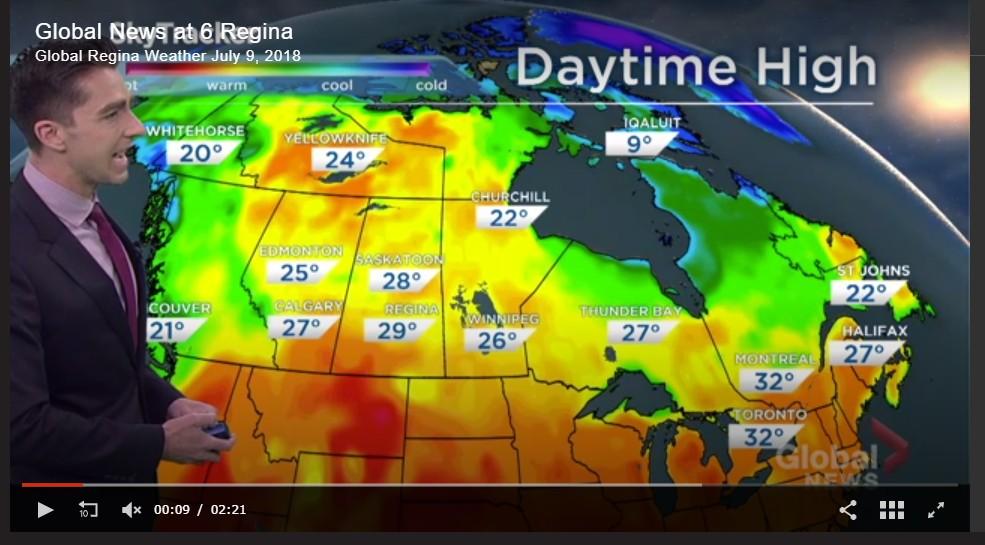
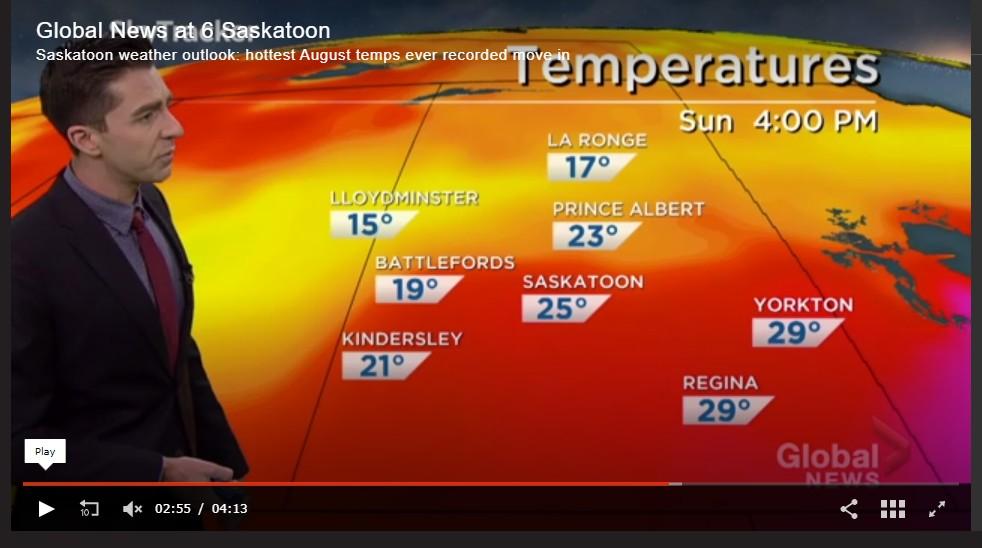
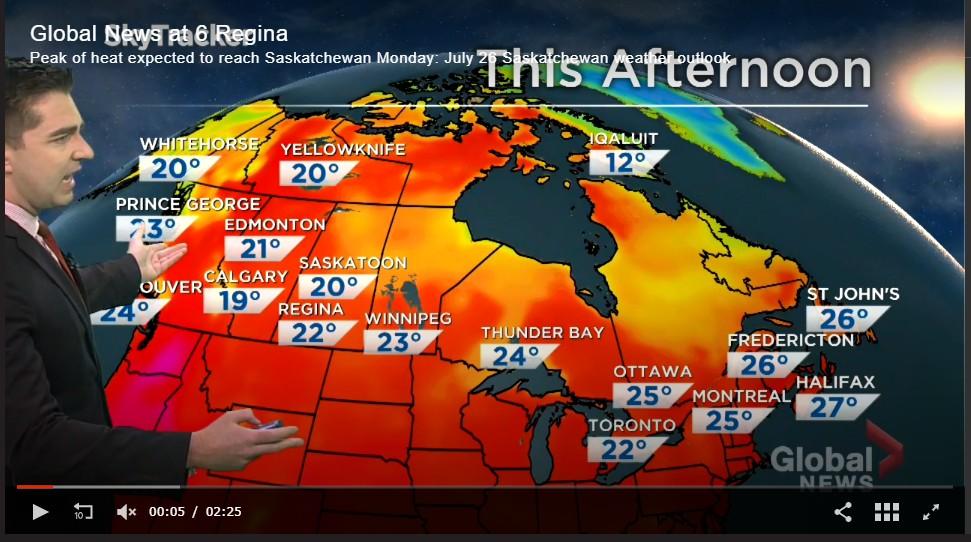
When the screenshots first circulated in 2022, Quinlan responded to social media inquiries about the color change with the same explanation about his computer (archived here).
"They just posted it and said, 'this is the narrative' or 'this was the reason why' -- that we were trying to really draw attention to warming or whatever it may be," Quinlan told AFP. "So, I just felt like I needed to address it at least once so that people would have that."
Scientific consensus
Most scientists agree climate change is to blame for more extreme weather events (archived here).
The Intergovernmental Panel on Climate Change said in its most recent report (archived here) that human activities have "unequivocally" caused global warming. July 2023 was the hottest month on record, according to the EU's Copernicus Climate Change Service.
A 2019 report from Environment and Climate Change Canada (ECCC) concluded the country is seeing more climate change effects as it warms at a faster rate (archived here).
"Observed changes in temperature extremes indicate that warm events are becoming more intense and more frequent, while cold events are becoming less intense and less frequent," said Eleni Armenakis, an ECCC spokeswoman, in an email on August 18, 2023.
In 2021, Canada recorded its hottest temperature ever at 49.6C (121F) in Lytton, British Columbia -- a town that was decimated by a wildfire days after the record was set.
The province faced another severe heatwave in summer 2023. Other parts of the country, including the Northwest Territories capital of Yellowknife, were evacuated due to wildfire threats.
More of AFP's reporting on climate change misinformation is available here.
Copyright © AFP 2017-2026. Any commercial use of this content requires a subscription. Click here to find out more.
Is there content that you would like AFP to fact-check? Get in touch.
Contact us




